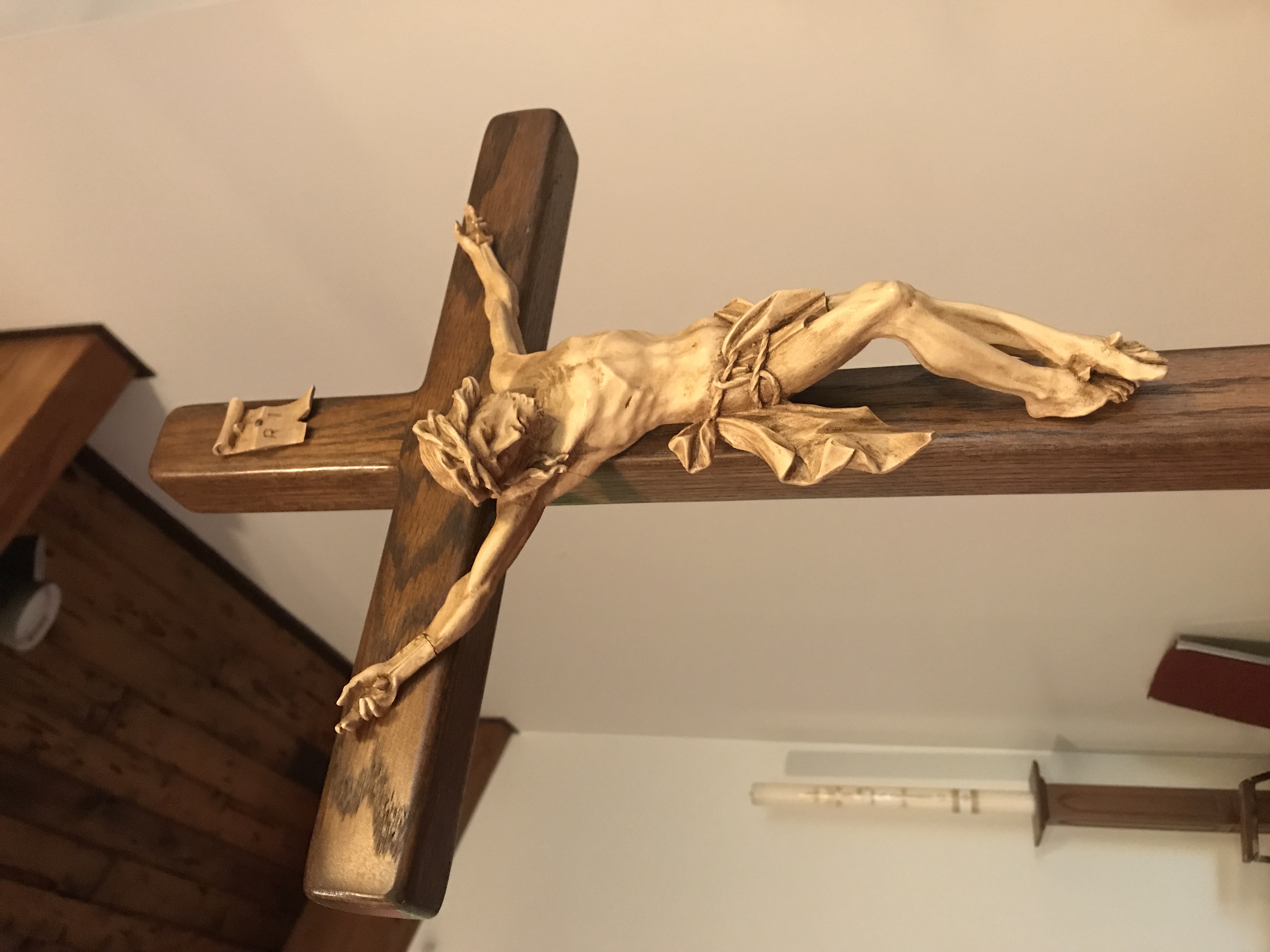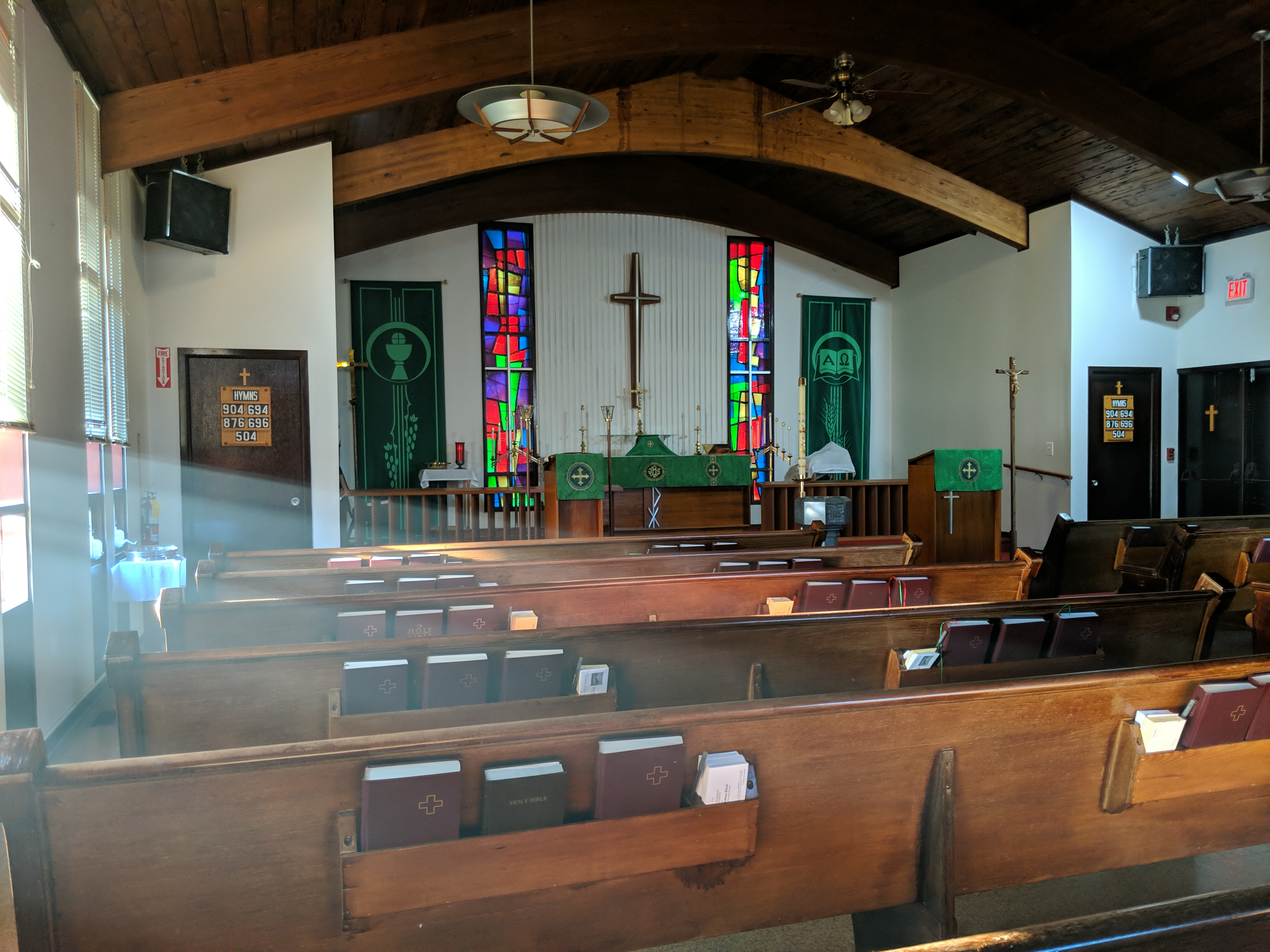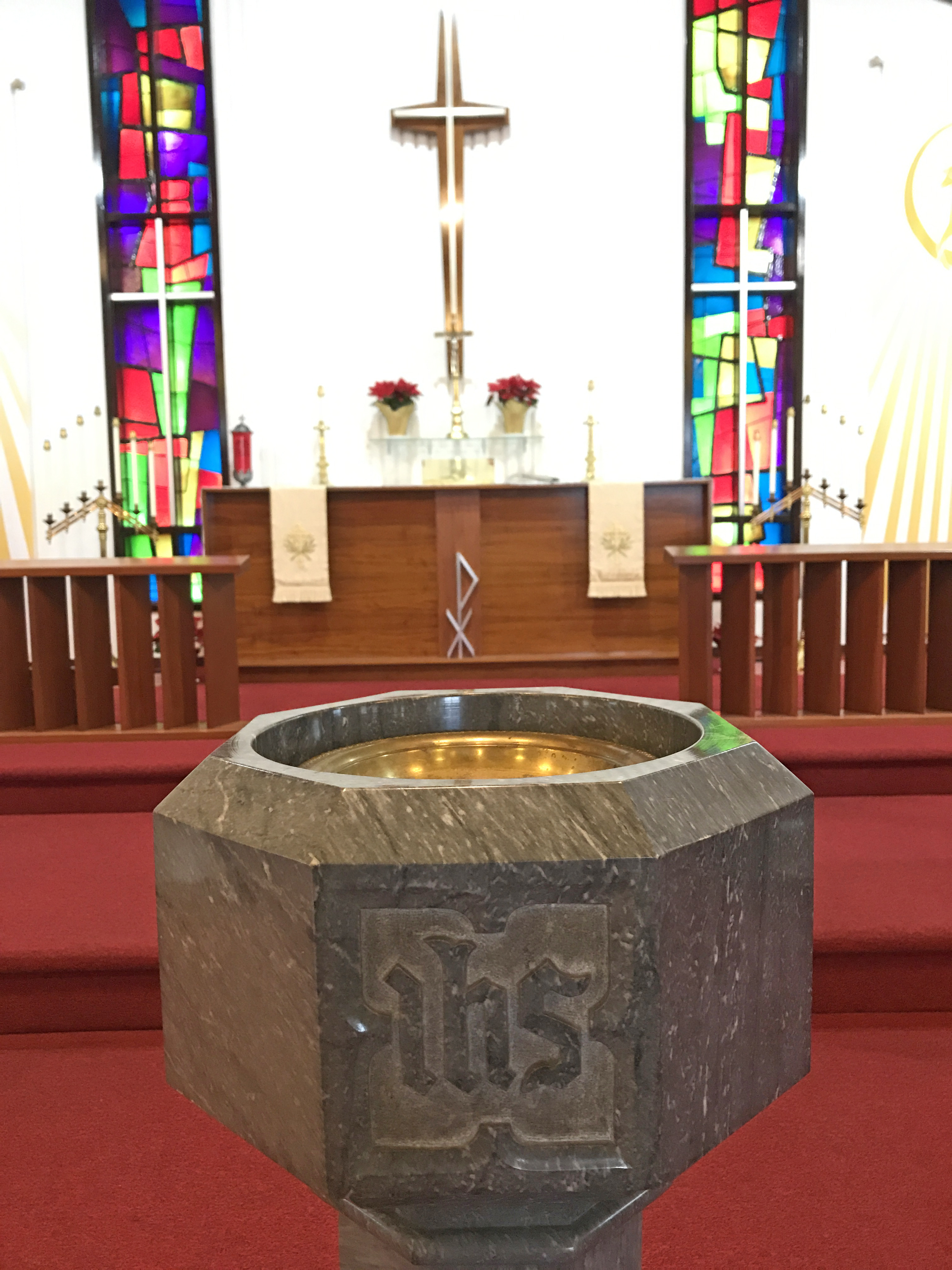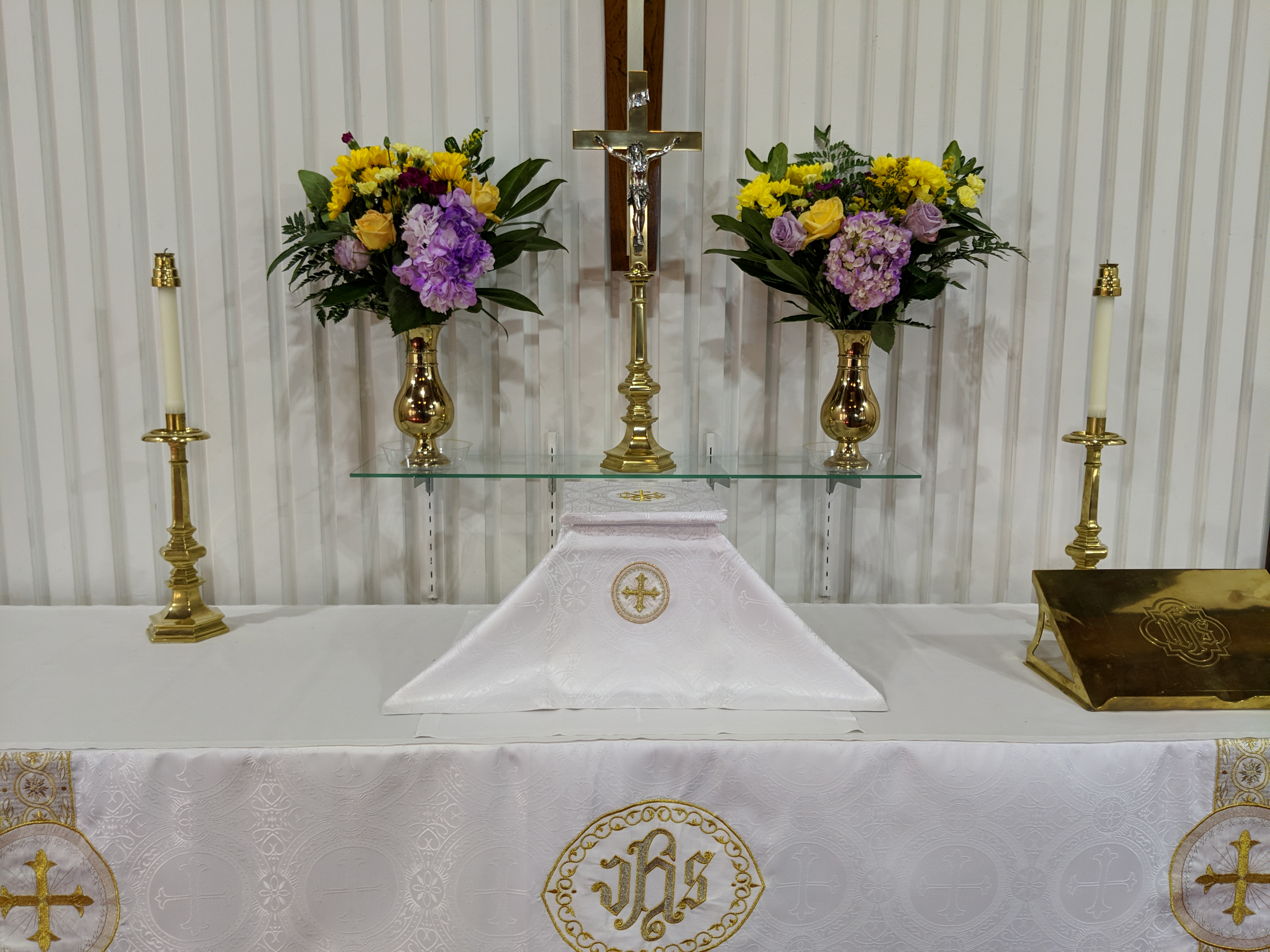(Transcribed by TurboScribe.ai.)
In the name of the Father and of the Son and of the Holy Spirit. Let us not be like the Jews in John chapter 8 and assert that we have never been in bondage to everyone. For everybody this most certainly is not true, that we have not nor have we never been in bondage.
We are all in bondage, in bondage to something or in bondage to someone. We are all slaves. We all serve a God.
Even the atheists who deny that they serve a God, indeed whatever they look to for their happiness, their joy, their contentment, their peace, indeed is their God. Not all slavery or being a slave is bad. Saints Peter, Paul, James, and Jude tell of themselves, describe themselves as slaves of Christ in their epistles.
It is a slave of Christ which we desire to be. For what determines what is good or bad slavery is not the slavery but the master, and from such masters come either good or bad slavery. We cannot serve two masters, two lords, for we either will hate the one and love the other or we will be loyal to the one and despise the other, even if we think such masters are being good or giving us what we want.
With these words that Jesus said, he has a specific God in mind, mammon, money, possession, riches, the goods that we want in life, whether by need or by want. This is what he speaks of. You cannot serve both God and mammon, such things.
For mammon leads you to worry. Why? Mammon will always be unfaithful. It is an unfaithful God, a God that will let you down.
If it doesn’t abandon you in this life, in the short time period that you have breath upon the earth, then it will most certainly leave you at the end of this life. God, on the other hand, in contrast, he leads you not to worry but to peace, to peace and contentment because he, unlike all false gods, he is faithful. He is true.
And he is with you always, even to the end of the age, even when the end of this age of your life comes about. That is the faithful God. And you cannot have both him and the other.
He will never leave you nor forsake you, neither in this life, nor at the end of it, nor in the life of the world to come. Jesus speaks in this context about do not worry and do not have two lords, for you cannot. And he gives two imperatives, two instructions to help you as you face down the false gods in your life.
The first is do not worry. Do not worry about your life, what you will eat or what you will drink, nor about your body, what you put on. Indeed, the most common form of worry in the history of the world is where will the next day’s sustenance come from? What shall I eat tomorrow? For most do not know throughout the history, that is.
Or at least if they know tomorrow, next week is not so sure. Definitely next month. Forget about next year.
There weren’t things to get used to the way that we get things used to the things of our day. What shall we eat? What shall we drink? Or what shall we wear would lead to common worry in days past. But notice how worry is linked closely to what shall come about.
There is not worry simply looking to the unknown of the future with unwarranted fear and trepidations with our minds obsessing about bad case scenarios, if not worst case scenarios. Jesus warns every human heart, do not worry, for every human heart tends to love mammon, tends to worry. He warns that such a path is void of serving God, for we cannot have two lords, we cannot have two masters.
So what is your life about? Is it more than what you have? Is it more than food for your mouth and clothing for your body? Does it mean more to you than that? Or have you reduced yourself to merely the things? Our worry tends not to come as those of days of old from scarcity. Our worry comes from bounty, for we live in a time of bounty unknown to most of history. All of us have great bounty.
By this I mean that Jesus’ warning against our worrying should be heard and applied in a different aspect about worry. There truly are very few poor among us if we live where we live, not just in Cleveland, Ohio, or the United States. Nearly all of us live with daily luxuries far exceeding that of King David.
There are truly very few poor among us. Very, very few of any of us have no idea what we will do to be able to eat tomorrow, to eat next week, next month. Think about the years to come.
Very few of us have that kind of worry. The type of worrying of not having our bounty is that kind which typically comes with anxiety and physical stress and knotted stomach. Such would be when that stomach remains persistently empty, worrying about, what shall I do for the food? And comes with stiff shoulders, sore neck, tensions and headache and the like.
But if we define worry as being overly or exceedingly concerned for something or even concerned for someone, we can see how those with much bounty may not have such anxious worry as to bring about the physical effects. But that doesn’t mean that we who have so much don’t worry. That we are not more concerned about the things of this world far more than we are given to be.
Either we’ll find plenty of other cares beyond food, clothing, shelter to worry about, or we’ll worry in a different way. Worry doesn’t just mean anxiety- or nervous, or on edge, or sick in stomach, shoulder, and head. To worry about things is to be concerned for them more than they ought to be.
If we’re more concerned with, if our hearts and minds are attached to our bounty, to our riches, to our luxuries here, to our money, our possessions, and how our lives are either good or bad by us keeping or having them, then we are serving mammon, just the same as the anxious poor folks, even though our worry is in the form of anxiety-free obsession. The obsession is still over things that do not last. It is simply a different kind of worry, an unhealthy care or concern.
It is still serving another god when we do not fear, love, and trust in God above all things. There are no exceptions there. Both kinds of worry, whether it’s as the poor worrying about what to eat tomorrow or to put on, or whether we can consider our things of more value than God and thus don’t have any anxiety, both forms of worry are idolatry.
Anxiety-free and physically sick with worry both replace God with false gods. It doesn’t have to be worry over food, drink, or clothing for worry to be sin because any worry is doubt, yea, even a denial of who the true God is and what he aims to do with you, for you, in you. Mammon is a liar and seeks to have us to love and be loyal to things that will pass away.
We cannot serve this false god and the true God. Therefore Jesus, how does he treat this unfortunate circumstance in which we find ourselves trying to serve Mammon and God both? There may be two ways that we can take this in response. Repent, a simple call to repent of idolatry and our worrisome hearts.
This is fitting and true and it is good to repent indeed. Yet how does our Lord in the text deal with us? How does he teach us? What does he say? His approach is not contrary to the call to repent but different. He aims to compassionately convince your wayward, doubting, worrisome heart that the reality in which you live does not have to be the one that your heart tries to create for you.
For you have a true Father in heaven who cares for you in ways from which idolatry and worry seek to distract you, to draw you away from the truth. When you are deep in worry, you fail to see even the beauty of the birds that are all about you, the birds of the air, all of whom knew not what they would eat today when they even began their morning song. They have no worry about tomorrow because of one reason, one reason that they’ve gotten used to, that your Father in heaven feeds them every day.
You fail also to see the wildflowers along the busy roadside, the flowers out that you’ve planted, the ones that the deer haven’t eaten yet. You fail to see the mums according to the neighbors’ porches and to realize that it is God at work all around you, arraying even these greater than Solomon in all his glory. It is by God that these are arrayed such, for he clothes them.
Oh, the question then that Jesus puts to you, for you to hear as you look around and see these birds, these flowers, are you not of more value than they? He doesn’t say yes, but the answer is implied, a most certain, undoubtable yes, you are. In your Father’s eyes, you are far more value than they, which brings the second imperative, the countering solution to idolatry, the thing that helps with your worry. Do not worry, and here’s the solution, the salve for your worrisome heart from Jesus himself, but seek first the kingdom and his righteousness, and all these things shall be added to you.
Mammon is a ruthless slave master as opposed to the Lord your God, who alone is good and who is good to you. Your worry is calmed as a slave of Christ, made alive in Jesus’s reign and in his righteousness, that he came to bestow upon you, not upon birds, not upon mums or the most beautiful flower that you enjoy, but upon you, upon those who fade like grass, for he is a good master, gentle and lowly in heart, calling all who labor and are heavy laden to find rest for your souls in him. It is he who is greater than all the worries and cares of this life, for they are all in his control.
Is he not God? Indeed, that is to whom you belong. Be anxious for nothing, Saint Paul tells us, that means nothing, no food, no drink, no clothing, nor anything else, but in everything by prayer and supplication with thanksgiving, let your requests be made known to God, and the peace of God which surpasses all understanding will guard your hearts and your minds in Christ Jesus, for he is a God upon whom you may cast all your cares, for he who made all cares for you. This is the remedy, the very comfort of knowing that indeed in times of repenting from our love of mammon, repenting of our worry, that we have a God who forgives, who desires to show us his gracious hand in each and every moment, to seek him first in his kingdom, and his righteousness means to go where he is present for you, where he gives to you these good gifts, to seek him is to seek his gifts by which he bestows upon you all that you need in body and soul, both here and in life everlasting.
To seek him means to trust his truth, the truth in which you are called to live, to trust his truth that promises that if your father in heaven washes away all your sins for Jesus’s sake, that he will also take care of the lesser matters of food, drink, clothing, everything else that you need. If he takes care of the greater, trust him indeed for even the lesser, for he cares for you and he knows what you need before you even ask. Do not worry, but seek first the kingdom of God and his righteousness, and all these things shall be added unto you.
In Jesus name.
(Transcribed by TurboScribe.ai.)















Comments are closed, but trackbacks and pingbacks are open.